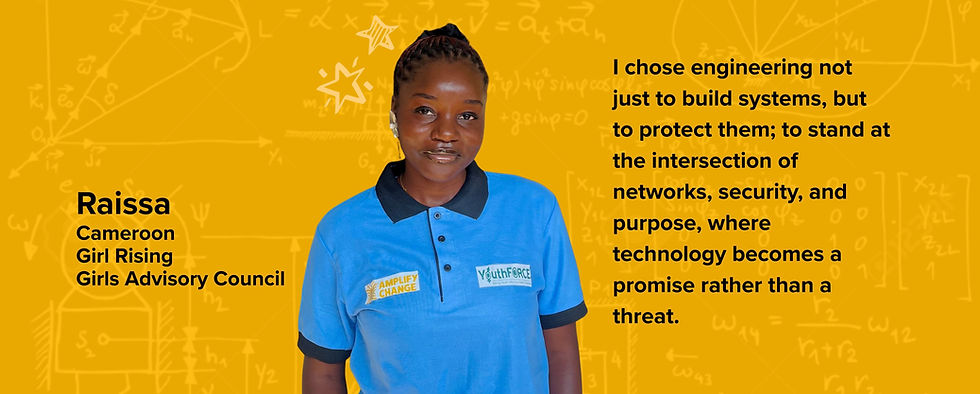Debbie Odenyi Presents at the Inaugural East African Community Regional Education Conference
- Aug 21, 2024
- 2 min read
Kenya Program Manager Debbie Odenyi shared findings from Girl Rising's measurement, evaluation and learning project at the August 2024 Inaugural East African Community Regional Education Conference in Tanzania. Her paper and presentation are shared below.

Prioritizing A Life Skills Education (LSE) and Gender Sensitization Based Curriculum To Nurture 21st Century Skills In Learners: Findings from 5 Counties In Kenya.
by Deborah Odenyi, Nidhi Shukla, Richa Hingorani, Khuzama Khan
Kenya has over 13 million adolescents aged between 10 to 19 years (Statista, 2024) and to realize
this demographic dividend, it is critical to work with adolescents on their self-awareness, mental
health, and mindfulness so they can believe in their strengths, set goals for themselves, work
towards achieving their dreams, and make informed decisions. Learning to learn is a competency
that involves far more than thinking as it involves the whole personality. This competence
includes awareness of one’s learning process and needs, identifying available opportunities, and
the ability to overcome obstacles to learn successfully (Kenya Institute of Curriculum
Development, 2019).
Girl Rising (GR) works in five countries to strengthen 21st century skills among adolescents - both girls and boys - and build allies for equal opportunities among educators, parents, and community members. In Kenya, GR partners with 10 grassroots organizations in five Counties to implement its 24-week long LSE and gender-sensitization based curriculum. This play-based curriculum rests on true stories of adolescent girls from across the globe, confronting and challenging barriers to their education and includes participatory activities that prompt discussion and reflection on key issues while fostering essential life skills. Complementary activities for parents help them understand the challenges adolescents navigate, the socio-emotional support they need, and introduce them to strategies to offer greater support to their children. In the last eight years that GR had implemented this program in over 11 countries, adolescents, educators, and parents have all witnessed marked attitudinal and behavioral shifts testifying to the impact of such a program design.
This paper examines the a) increased awareness of the importance of girls’ education, b)
nurture competencies like self-efficacy, critical thinking, and creative problem-solving in girls and boys, and c) support them in achieving their aspirations. Main findings among students
demonstrated their a) improved understanding of self, b) identified goals and dreams
transcending gender roles, c) identified support networks, and opportunity for growth in failure, d) ability to state opinions openly, e) ability to navigate peer pressure and f) improved beliefs about equal rights to education. Teachers demonstrated a) ability to implement participatory teaching approach, storytelling and improved interactions with students, b) expressed greater
understanding of gender bias and were able to take steps to reduce gender bias at school.
References.
Kenya Institute of Curriculum Development, (2019) Basic Education Curriculum Framework,
Nairobi, Kenya: KICD.
Statista, (2024) Kenya: Adolescent Population 2010-2023-Statista, Natalie Cowling.
02023%2C%20Kenya's%20population,9.63%20million%20individuals%20that%20year.
Recommendations:
1. Creating narrative research based MEL framework to assess complexities of LSE and
gendered attitudes.
2. Longer and deeper engagement on LSE and gender among adolescents to become
future ready.
3. Building conducive environments for educators and school staff through pre and
in-service training.




Comments